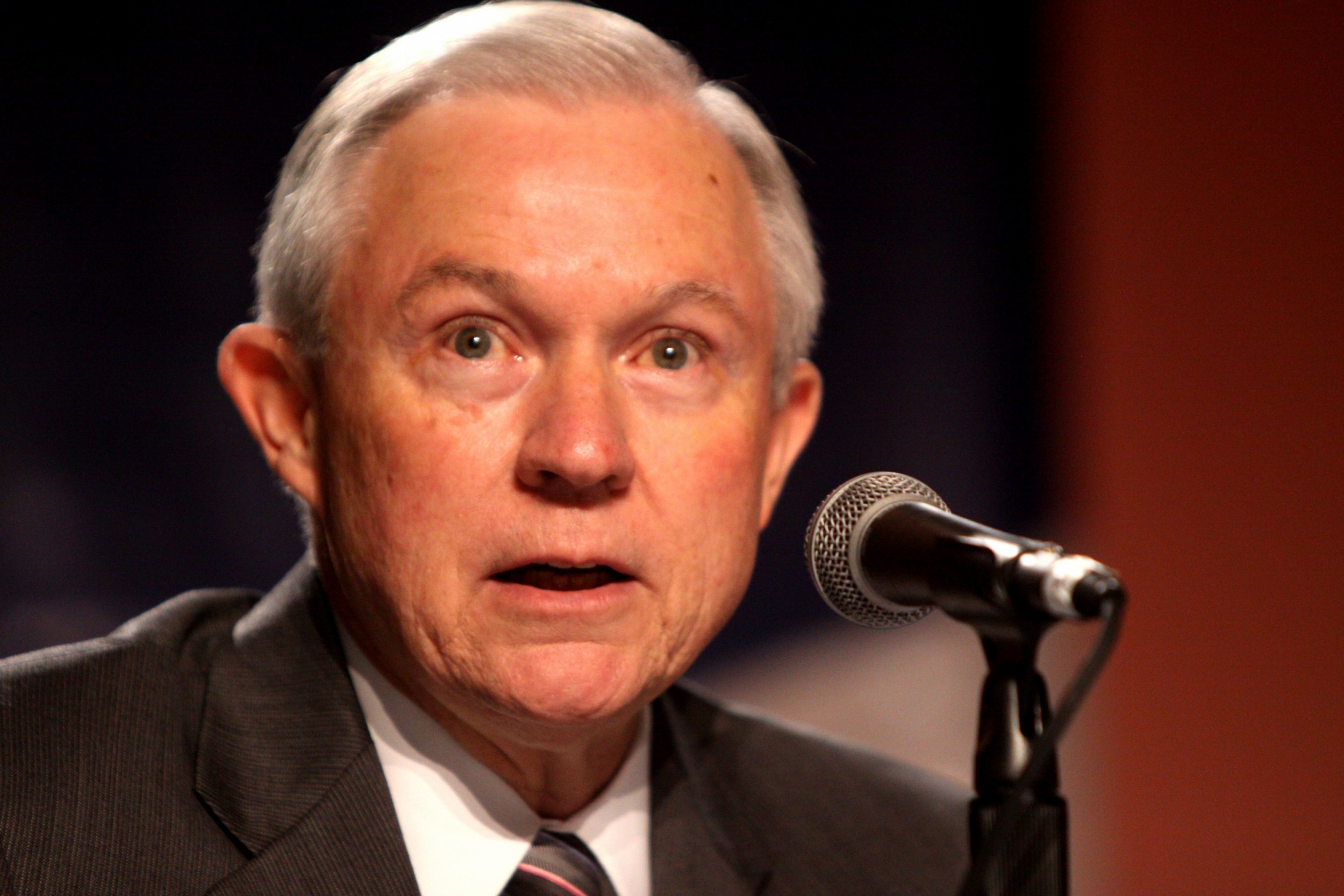Views expressed in opinion columns are the author’s own.
Last August, the Obama administration’s Justice Department announced it would phase out government support for private prisons. It was Deputy Attorney General Sally Yates (whom Donald Trump later fired for refusing to defend his Muslim ban) who “instructed federal officials to significantly reduce reliance on private prisons,” according to PBS. While this change would only move about 11 percent of federal prisoners, it was a symbolic step toward ending the injustice of private prisons, and it signaled a potential shift in our criminal justice system.
However, that progress stalled earlier this month when new Attorney General Jeff Sessions scrapped the plan and ordered the federal government to continue using for-profit prisons. Sessions’ decision is indicative of what many feared before his confirmation: His corruption, racism and deep moral failings will have devastating policy implications. By changing course on private prisons, Sessions is using his department for anything but justice, instead serving corporate interests and the status quo.
Possibly the most obvious factor behind this decision is corruption in the Trump administration. Senator Bernie Sanders put it simply, “This is how our corrupt political and campaign finance system works. Private prison companies invested hundreds of thousands of dollars in Donald Trump’s presidential campaign and today they got their reward.” The financial evidence supports the senator’s claim. GEO Group and CoreCivic, some of America’s largest private prison companies, each gave $250,000 to Trump’s inauguration fund. GEO also donated $225,000 to pro-Trump PACs during the campaign.
There is an obvious ethical conflict in private prison companies giving money to Trump, especially when his attorney general so blatantly serves their economic interests. By choosing to continue using for-profit prisons at the federal level, Trump and Sessions are rewarding their wealthy donors at the expense of thousands who will be forced into unsafe facilities. More broadly, the entire concept of building prisons for profit should raise red flags, as it creates an incentive to incarcerate. These companies make their money as a result of putting more people behind bars. It is in their best interests to manipulate the state into expanding an already out of control carceral state.
Private prisons are a symptom of a larger problem, the system of mass incarceration that has developed in the United States since the mid 20th century. “Representing just 5 percent of the world’s population, we now hold 25 percent of its inmates.” It was clear during his campaign that Trump had no problem with this rise of incarceration. Instead, he consistently made false claims that crime was on the rise. Rather than acknowledge the structural flaws of a criminal justice system where one in three black men can expect to be incarcerated in his lifetime, according to the American Civil Liberties Union, Trump argued for more “law and order.” When put in historical context, this phrase has always been racially coded to refer to protecting white supremacy. Whether the speaker was Richard Nixon or Bill Clinton, the idea was the same: White Americans fear the racial other and incarceration is a means of control that will ease those fears. After assuming office, Trump followed through on these ideas by nominating Sessions who in turn rescinded the order on private prisons.
Looking back at Sessions’ career in the public eye, his disregard for communities of color and common-sense prison reform comes as no surprise. He opposed the reduction of long prison sentences for nonviolent crimes, personally blocking a bipartisan effort in 2016. As U.S. Attorney for the Southern District of Alabama, he expanded the racially biased War on Drugs, convicting drug offenders at twice the rate of other Alabama federal prosecutors. Sessions also failed to get confirmed to the federal judiciary amid concerns over his ability to be racially impartial. That was in 1986. It was, therefore, a dark day for our criminal justice system when Sessions was confirmed as attorney general.
His policy on private prisons is just another reminder of his moral failings and the failings of the administration that appointed him. The Justice Department needs a leader who is concerned about protecting all American citizens and is willing to work to abolish for-profit prisons. Jeff Sessions is not that leader.
Jack Lewis is a junior government and politics major. He can be reached at jlewis20@umd.edu.



